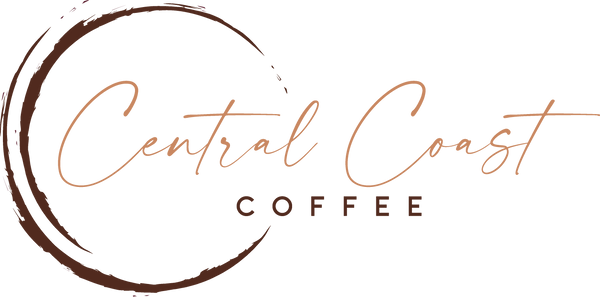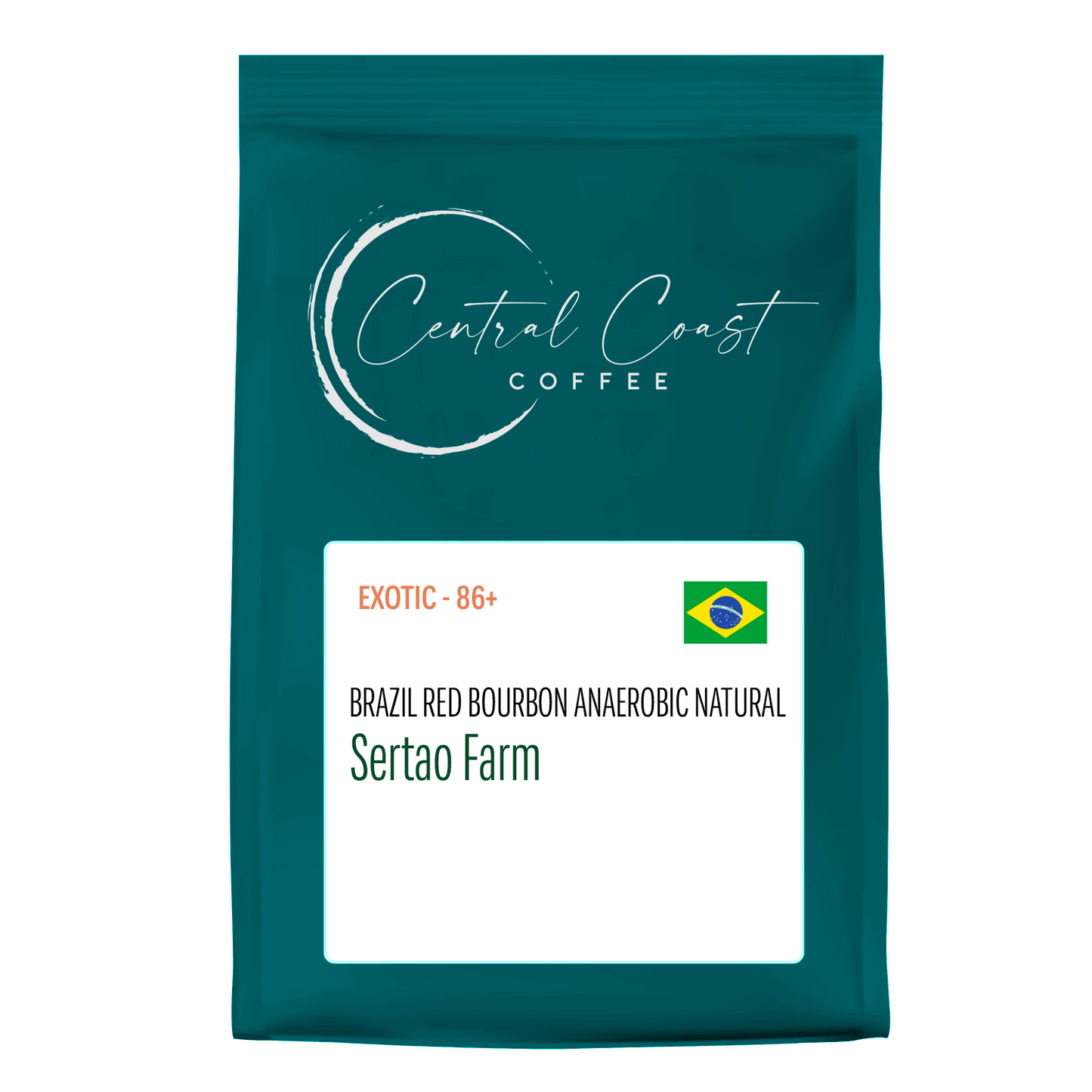
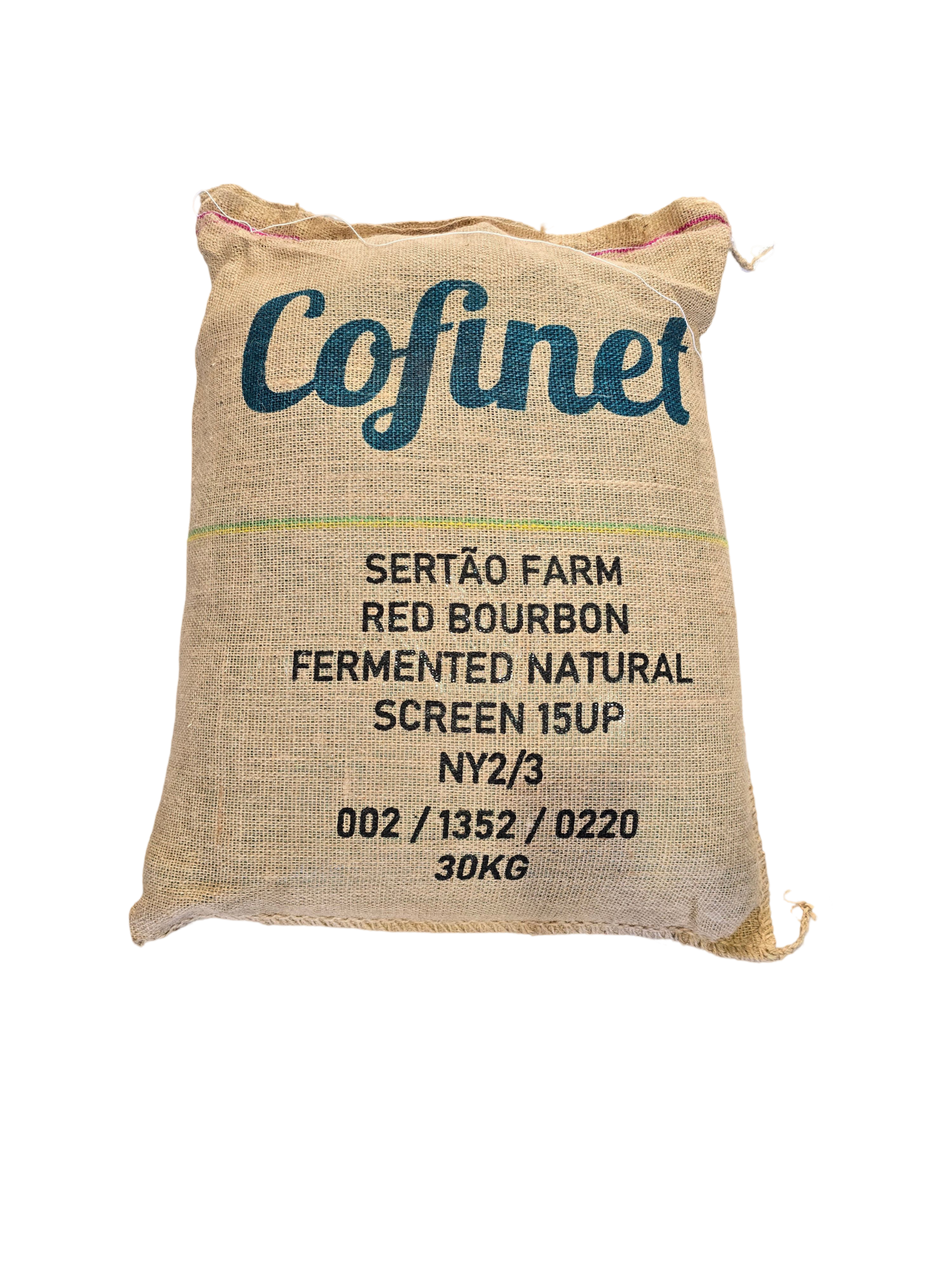
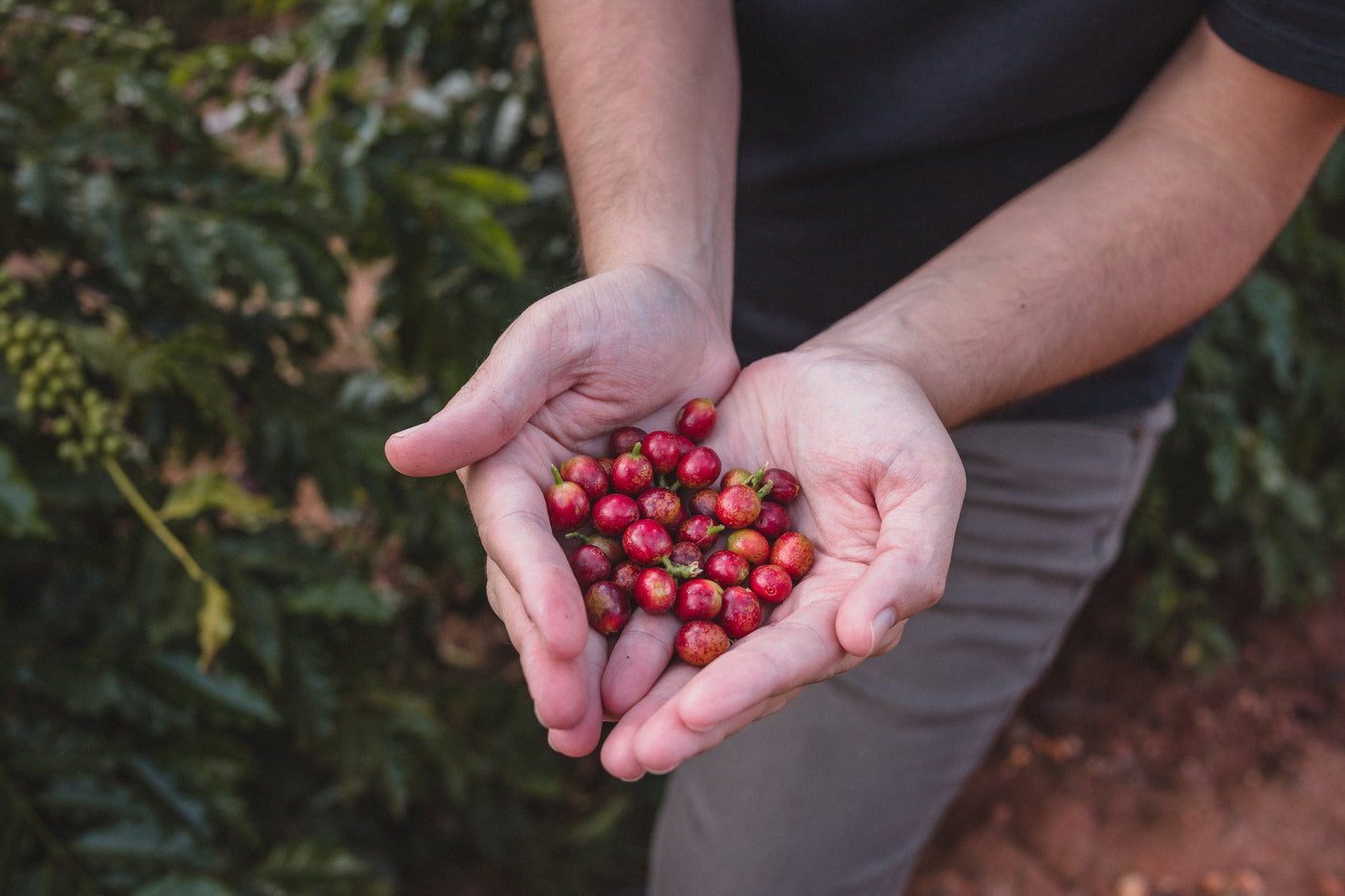
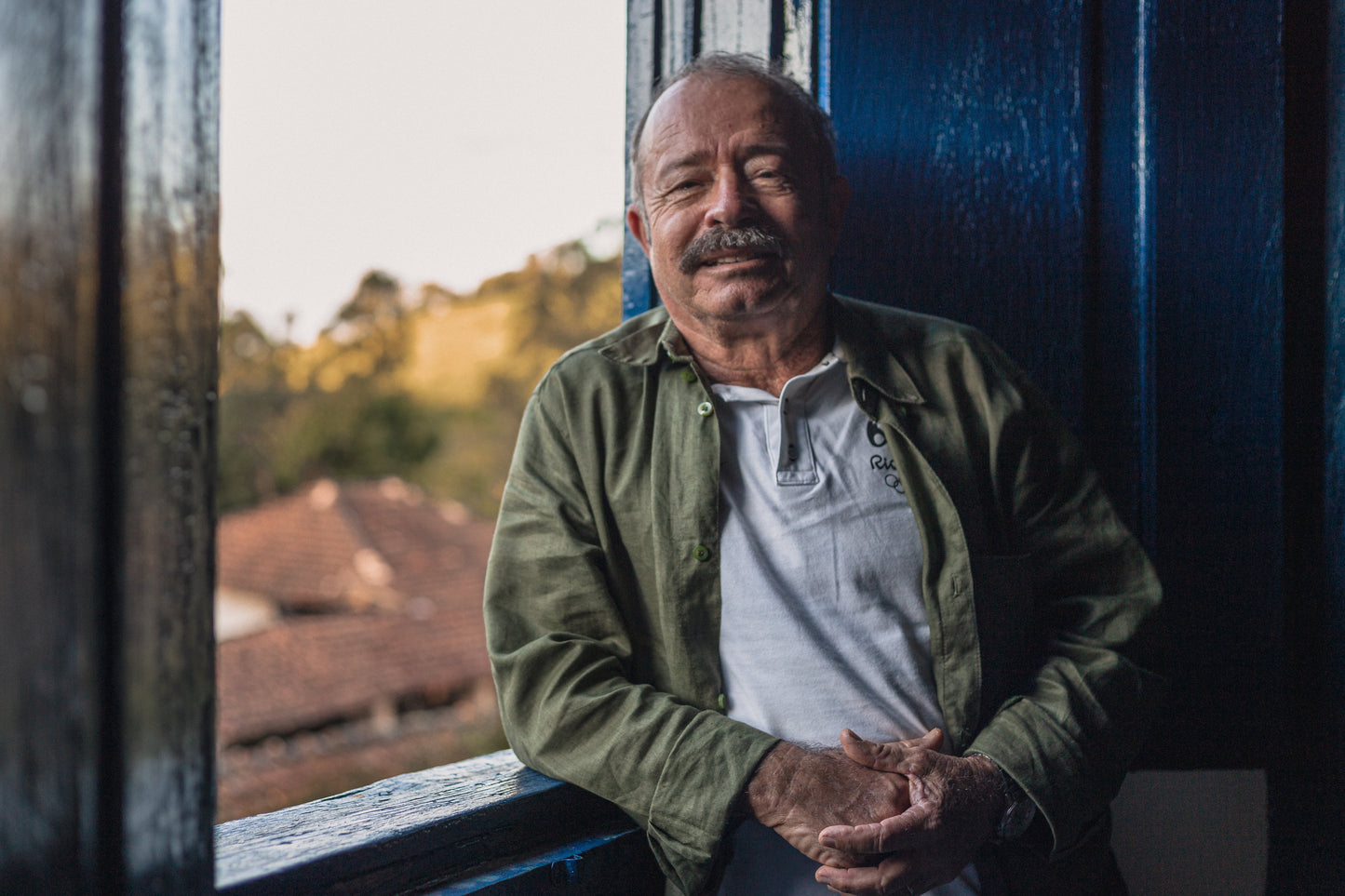
Are you looking to buy Brazil | Sertao Farm | Red Bourbon Anaerobic Natural | Signature Series in Australia?
SCA Score: 86.5
Suitable with Milk? YES
Roast Level: Light (80) or 1kg option is Medium Espresso Roast
Farm: Sertao Farm
Producer: Jose Isidro
Location: Carmo de Minas,Sertao
Soil Characteristics: Volcanic Ash
Growing Temperatures: 18-28 degrees
Annual Rainfall: 1850mm
Sertao farm has an average annual temperature of 18°C. Coffee trees are planted on the top of hillsides with slopes of up to 50%, which is an important measure to avoid frosts.
Frosts are common in the region during winter, and they can affect the health of the crops. This planting technique also provides a more uniform ripening process and protects against fungal infections due to lower relative humidity. Jose Isidro once said that all the inspiration for the business came from his father. Isidro’s four children, after completing their careers, returned to Minas Gerais to help keep the business running.
After being mechanically picked, the coffee cherries are carefully placed in water to float and remove any low-density or defective cherries. The selected cherries are then transported to barrels where they undergo a meticulous anaerobic fermentation process for 72 hours. Following this, the cherries are spread out on raised beds and left to dry until they reach the optimal moisture level.
-
About Bourbon Variety
Bourbon is a specialty coffee darling known for its excellent cup quality and good performance at high altitudes. The variety is susceptible to major diseases, which can make it difficult to grow. Bourbon traces its heritage back to Yemen. French missionaries introduced Bourbon from Yemen to Bourbon Island (now known as La Reunion) in the early 1700s. Bourbon takes its name from the island where it prospered. Bourbon has had a huge effect on modern coffee varieties as one of the major ascensions for many varieties grown across the world. Today, Bourbon is available in both yellow and red varieties.
Coffee in Brazil
Just under 40% of all coffee in the world is produced in Brazil - around 3.7 million metric tons annually. With so much coffee produced, it’s no wonder that the country produces a wide range of qualities. Brazil produces everything from natural Robusta to the neutral and mild Santos screen 17/18, to the distinctive Rio Minas 17/18. In recent years, Brazilian producers have also begun investing more heavily in specialty coffee production. Through our in-country partners in Brazil, including our sister company, we are able to provide a wide range of Brazilian coffees to our clients: from macrolot to microlot.
Today, the most prolific coffee-growing regions of Brazil are Espirito Santo, São Paulo, Minas Gerais, and Bahia. Most Brazilian coffee is grown on large farms that are built and equipped for maximizing production output through mechanical harvesting and processing. The relatively flat landscape across many of Brazil’s coffee regions combined with high minimum wages has led most farms to opt for this type of mechanical harvesting over selective hand-picking.
In the past, mechanization meant that strip-picking was the norm; however, today’s mechanical harvesters are increasingly sensitive, meaning that farms can harvest only fully ripe cherries at each pass, which is good news for specialty-oriented producers.
In many cases and on less level sections of farms, a mixed form of ‘manual mechanized’ harvesting may be used, where ripe coffee is picked using a derriçadeira – a sort of mechanized rake that uses vibration to harvest ripe cherry. A tarp is spanned between coffee trees to capture the cherry as it falls.
With the aid of these newer, more selective technologies, there’s a growing number of farms who are increasingly concerned with – and able to deliver - cup quality.
SKU: brazil_sertaofarm_red_bourbon_160g
Package Weight: 200g
How does my coffee come packaged?
Despite some of our product images looking very fancy our coffee is packaged into a plain brown paper foiled lined bag with a Swiss WIPF degassing valve. This offers superior oxygen and moisture protection. We recommend once you crack the seal you store your coffee in AirScape containers or Weber Workshop Bean Cellars for a single dosing option.
You can also freeze/vacuum seal in small lots, then use straight away once removed from freezer.
We don't have fancy printed bags with ziplocks (more plastic), we save that cost and buy better quality green beans so you can focus on your cup quality instead of fancy marketing and artwork.
